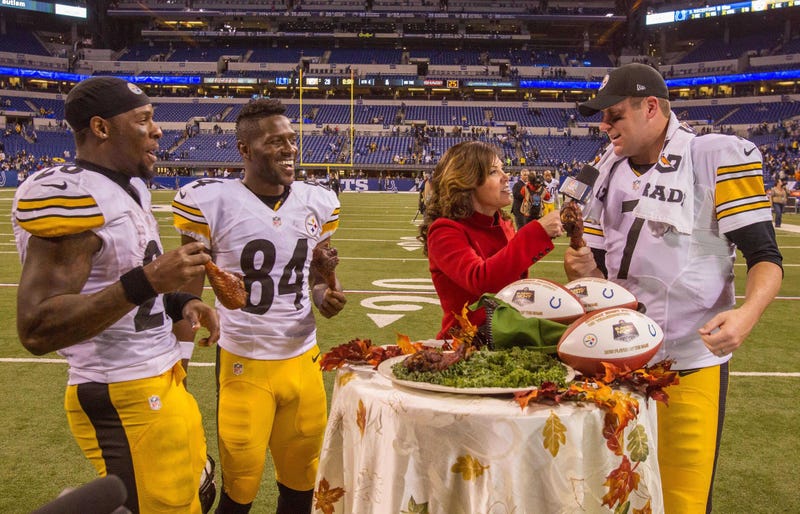
It seems Antonio Brown won. The All-Pro wideout successfully fought, clawed and tweeted his way out of Pittsburgh for pennies on the dollar, with the Steelers trading one of the game’s best wide receivers to the Raiders for a third- and fifth-round draft pick. In the process, Brown received a contract extension from Oakland to make him the game’s highest paid receiver. It’s a power move that few players have pulled off before, and it officially marks the end of an era in the Steel City.
Combined with Le’Veon Bell’s 2018 decision to sit the entire season and his impending departure in free agency, the Steelers’ “Killer B’s” trio of Bell, Brown and Ben Roethlisberger is no more. Considered three of the best in football at their position, it has to be considered nothing short of a disappointment that in six years together Pittsburgh won just two playoff games. That trio joins these other five who looked destined for greatness before going their separate ways.
Argentina – Messi, Di Maria & Aguero:
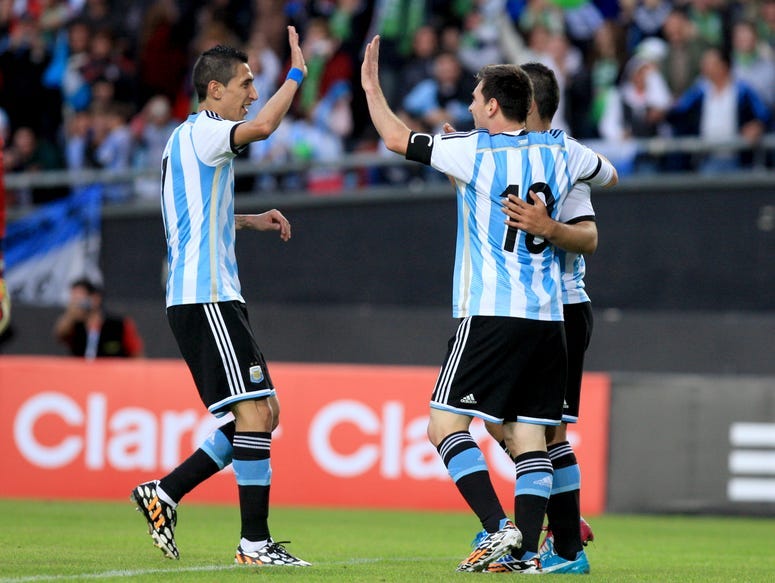
Lionel Messi is in the conversation for the greatest player of all-time, having won five Ballon d’Or awards and 32 club trophies, while scoring 65 international goals. Angel Di Maria has nearly 100 caps with the senior team and is a Paris Saint-Germain staple. Sergio Aguero is Manchester City’s all-time leading goal scorer and has nearly 90 international caps.
Together this trio has appeared in three World Cups, making the quarterfinals in 2010, the final in 2014 (losing to Germany) and the Round of 16 in 2018. They’ve lost in the Copa America final on penalties in both 2015 and 2018. And they’ve never won a major trophy, the lone black mark on otherwise sterling careers that are on the back-end, especially as Messi debates whether his international career is over.
Boston Bruins – Bourque, Neely & Oates:
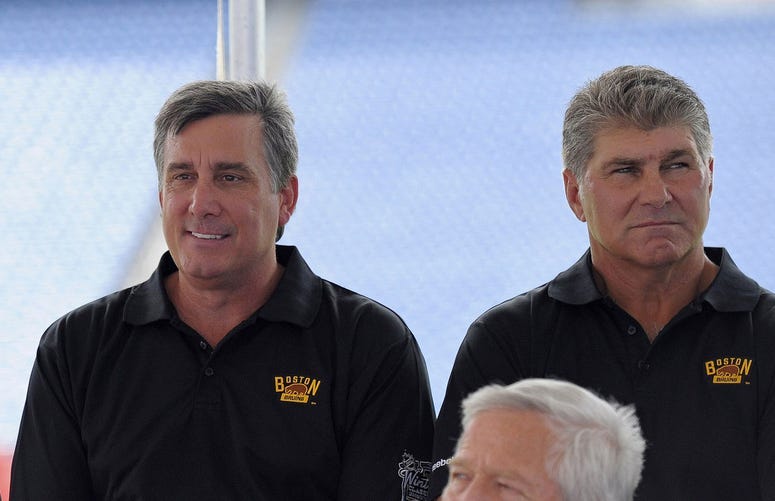
When Boston traded for the 29-year-old Oates in 1992 it solidified one of the best rosters in hockey, which already featured one of the greatest defensemen of all-time in Ray Bourque and a future Hall of Famer in Cam Neely. He was supposed to help Boston get over the hump after losing in the Stanley Cup Final in 1988 and 1990.
Together from 1992-97, the Bruins made the playoffs each year but never got further than the Eastern Conference Final, due largely to the fact that Neely was never the same player after the 1991 playoffs, when he was hit by Ulf Samuelsson and suffered a devastating knee injury that limited him for the remainder of his career. A healthy Neely and a non-disgruntled Oates (he berated management in ’97 and was traded mid-season) could have made the Bruins a Cup contender throughout the ‘90s. Instead, Bourque had to go to Colorado to win his Cup.
Boston Red Sox – Williams, Doerr & DiMaggio:
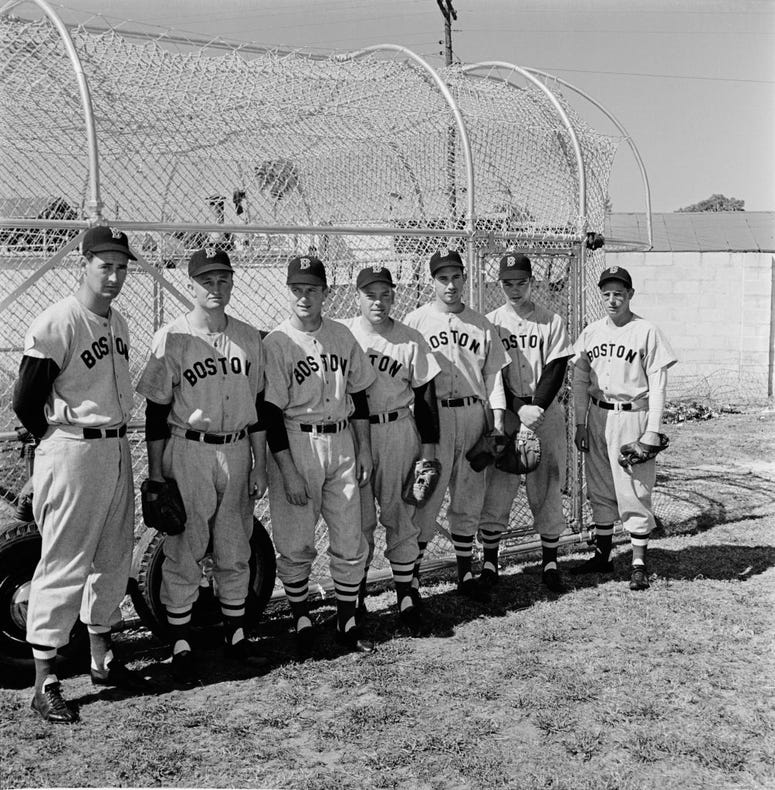
Ted Williams is one of the greatest hitters who ever lived, compiling over 521 home runs, two Triple Crowns, two MVPs and a .344 lifetime average over a 19-year career that was halted twice by military service. He’s joined in the Hall of Fame by Bobby Doerr, while Dom DiMaggio patrolled centerfield for over a decade and made seven All-Star games.
Together these three spent 1940-51 together, winning the pennant in 1946, where they fell late in Game 7 of the World Series to the Cardinals on Enos Slaughter’s “Mad Dash”. In the days before the postseason, Boston finished runner-up to Joe DiMaggio and the Yankees year after year, only getting the one shot at a championship.
Buffalo Bills – Kelly, Thomas, Reed:
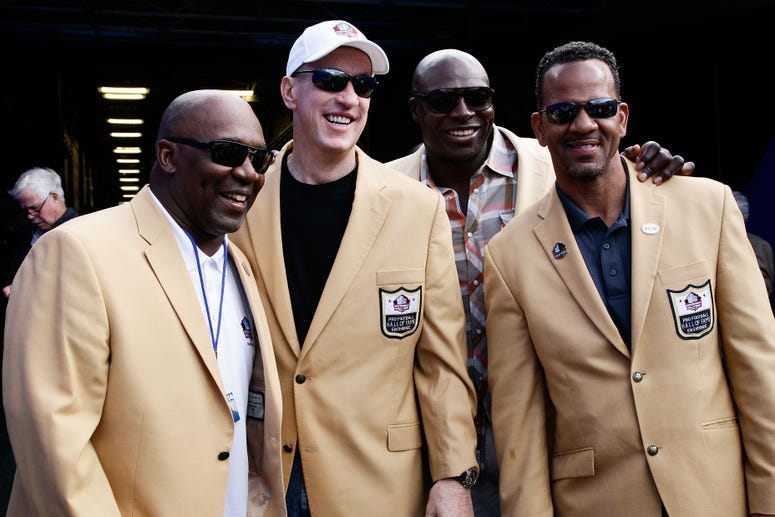
It certainly wasn’t for a lack of opportunities. All Hall of Fame players, the Jim Kelly-Thurman Thomas-Andre Reed trio were together from 1988-96, with their prime coming between ’89 and ’92, when Buffalo finished top-three in the NFL in points each year. Infamously, that coincides with the Bills’ streak of four straight Super Bowl losses, from 1990-93.
Oklahoma City Thunder – Durant, Westbrook & Harden:
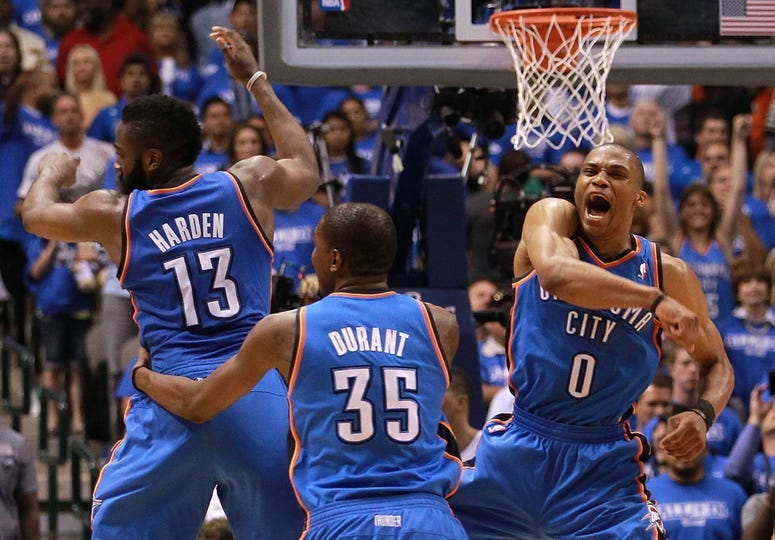
Despite losing to the Heat in the 2012 Finals, the Thunder were among the league’s best teams with arguably the brightest future. After all, Kevin Durant, Russell Westbrook and James Harden were all among the league’s best players, and all were 24 or younger. But with the first two already paid max money, Harden couldn’t receive a max extension of his own without OKC going over the luxury tax. So after he turned down a four-year offer worth $52-55 million, he was traded to the Rockets as part of a seven-player, three-pick deal in which Houston essentially fleeced Oklahoma City.
Of course, after continuing to fall short of a championship, Durant bolted for Golden State in 2016, and one of the best trios in the league fell apart.
